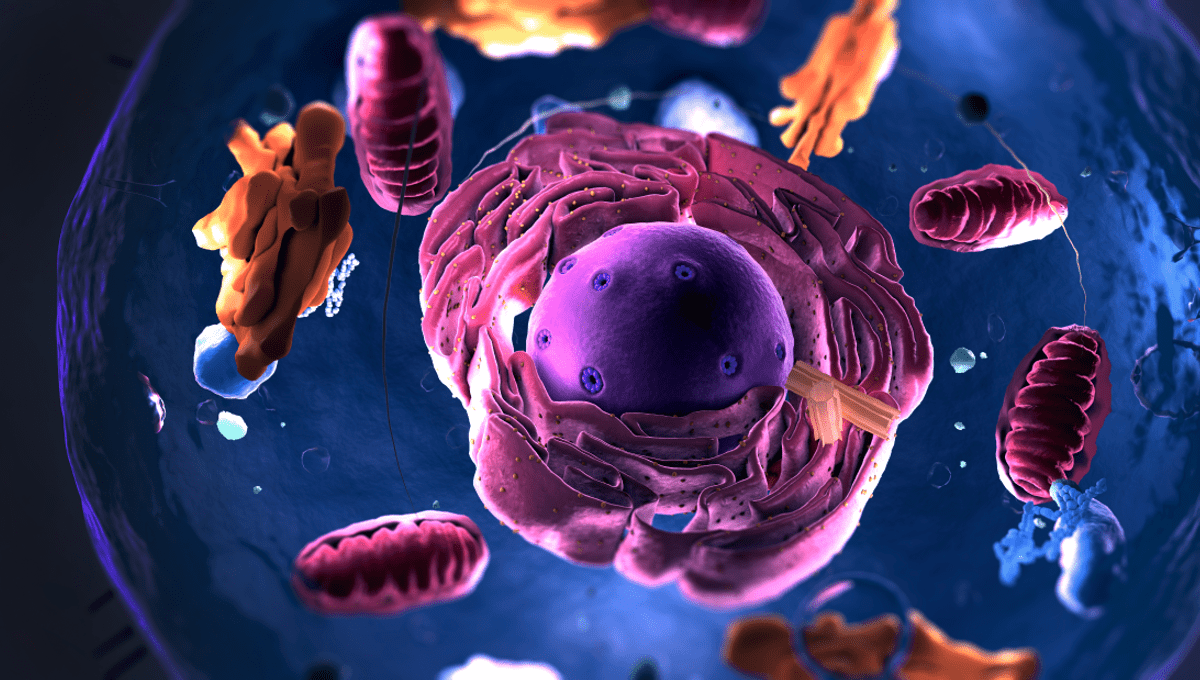
When we talk about human evolution, we’re often discussing our ancient ancestors but as a species, we continue to change in modern times. Now, research has discovered a new route through which human evolution can occur in the way that genetic material from our mitochondria can enter the genome.
As well as representing a mechanism through which Homo sapiens genomes can be altered and those changes carried to their offspring, the mitochondrial DNA “inserts” were also found to be present in some tumors. The findings could mean that these inserts are deployed into the genome as a kind of band-aid to try and repair damage, but it’s possible they may also sometimes cause cancer.
The pivotal research comes from University of Cambridge and Queen Mary University of London where scientists looked at 11,000 families’ DNA as part of the Genomics England’s 100,000 Genomes Project, which aims to study paternal inheritance. They were conducting the study as a follow-up to previous research, which believed to have found evidence of mitochondrial DNA passing down the paternal line, a curious finding given that it was previously believed to only carry through maternal inheritance.
Their investigations revealed that children employed in the study exhibited mitochondrial inserts that didn’t appear to have been inherited from either parent. After extending their research to over 66,000 people, it became clear that mitochondrial DNA entering the genome is actually happening all the time and represents a mechanism through which humans can evolve.
While the presence of mitochondrial DNA inserts in the genome were common, they might not have any notable effects on a person owing to the way our gene expression can be altered by epigenetic modifications. However, for an unlucky few the inserts can lead to serious illness.
“Usually they are inserted into non-coding space or silenced by methylation after insertion to prevent them affecting cell/gene function,” Professor Patrick Chinnery from the Medical Research Council Mitochondrial Biology Unit and Department of Clinical Neurosciences at the University of Cambridge, told IFLScience. “If they disrupt the genes they can cause cancer or rare genetic diseases.”
For those in need of a quick recap, mitochondria earned its place in the Hall Of Meme Fame as “the powerhouse of the cell”, a worthy description for an organelle that acts like a battery that keeps our biological processes ticking over. It first emerged billions of years ago when an animal cell took in a bacterium lodger that never moved out. Over time, that lodger worked its way into the animal cell nucleus, opening up an avenue of communication through which the two cell types’ genomes have been able to make exchanges.
“This was all thought to have happened a very long time ago, mostly before we had even formed as a species, but what we’ve discovered is that that’s not true,” Chinnery explained in a statement. “We can see this happening right now, with bits of our mitochondrial genetic code transferring into the nuclear genome in a measurable way.”
Exactly how these inserts work their way into the genome requires further investigation, but it’s thought they affect 1 in 4,000 babies born and possibly takes place within the mother’s egg cells. Analyses of 12,500 tumor samples revealed these inserts are much more common in cancers, found in roughly 1 in 1,000, and may sometimes be responsible for the disease.
That said, the inserts could have implications for cancer research owing to the role they seem to play in tumor cells. “The inserts seem to repair DNA breaks, which are a major cause of cancer,” Chinnery explained to IFLScience.
Questions remain about how exactly the mitochondrial DNA enters the genome, and if it’s possible that it might even be absorbing parts of our nuclear DNA, but the discovery marks a poignant moment in our understanding of human evolution and disease.
“I am so delighted that the 100,000 Genomes Project has unlocked the dynamic interplay between mitochondrial DNA and our genome in the cell’s nucleus,” concluded Professor Sir Mark Caulfield, Vice Principal for Health at Queen Mary University of London in a statement. “This defines a new role in DNA repair, but also one that could occasionally trigger rare disease, or even malignancy.”
This study was published in Nature.
Source Link: Discovery Of New Route For Human Evolution Affects One In 4,000 Babies